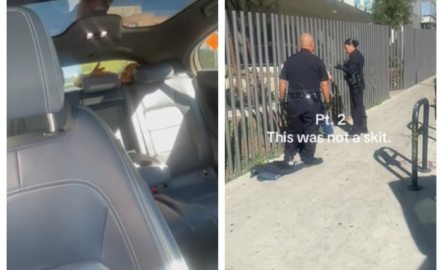Calvin Bright was convicted in 1995 for a double murder despite maintaining his innocence.
Twenty-five years down the line, the 49-year-old is now walking away a free man thanks to a crucial piece of new evidence that was discovered by his defence team.
According to WUSA-TV, Bright was freed Wednesday during his re-sentencing hearing in D.C. Superior Court.
He was arrested in 1994 for the murders of Tammy Peay and William Ramsey. During investigations into the case, a letter from a detective to another naming another person of interest in the murders was not disclosed to Bright’s defense team, his lawyer, David Benowitz said.
The details of the letter revealed another suspect, named “Catman”, was picked up and interrogated about the murders but “had used too much dope and began to believe he was god,” WUSA-TV reports. Bright was sentenced to 65 years to life.
Benowitz believes the undisclosed letter would have changed his client’s conviction had it been brought to the knowledge of the defense team.
“About two years ago, so approximately 23.5 years after Mr. Bright was originally arrested in this case, there was a disclosure made by the United State’s Attorney’s Office that essentially said we found this note in…the file maintained by homicide detectives who were investigating the case originally that named another suspect, not Mr. Bright,” Benowitz said at the re-sentencing hearing.
“That information was never disclosed before. It had not been disclosed to Mr. Bright’s original trial counsel. It was not disclosed to myself or anyone on our team, and we started representing Mr. Bright in post-conviction litigation in 2007.”
He continued: “It would have changed everything about this case. As Mr. Bright’s original trial counsel testified…had he had that information it would have changed the way he investigated the case, the way he litigated the case.”
Bright, who was expected to be released on Wednesday night on time served will be on probation for five years. His re-sentencing agreement, however, stipulates that he cannot sue the District, WUSA-TV further reports.
Despite the non-disclosure of the letter that could have turned around his conviction, Bright doesn’t harbor any ill feelings.
“I always stated that I was innocent of this crime, and now the day has finally come when I’m out here,” he said.
Just 15 credits shy of obtaining an associate’s degree, Bright’s desire is to pursue a career in criminal justice and also open a investigation firm.
“So now I can do something about the next person that winds up in the predicament that I went into,” he said.










